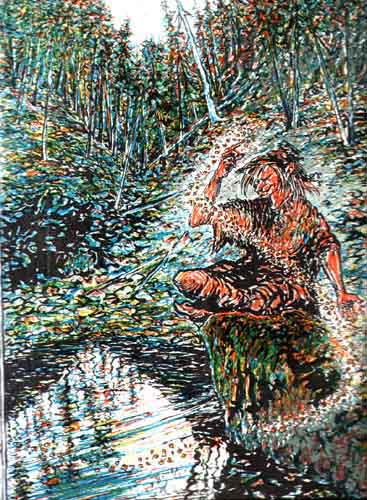
In some cultures, there are dualistic myths, featuring two demiurges creating the world, or two culture heroes arranging the world - in a complementary manner. He returned some time later with a child he had given birth to-the eight-legged horse Sleipnir, who served as Odin's steed. In the case of Loki's pregnancy, he was forced by the Gods to stop a giant from erecting a wall for them before 7 days passed he solved the problem by transforming into a mare and drawing the giant's magical horse away from its work. Loki, the Norse trickster, also exhibits gender variability, in one case even becoming pregnant interestingly, he shares the ability to change genders with Odin, the chief Norse deity who also possesses many characteristics of the Trickster. Such figures appear in Native American and First Nations mythologies, where they are said to have a two-spirit nature. Hansen makes the interesting observation that the Trickster is nearly always a male figure.įrequently the Trickster figure exhibits gender and form variability, changing gender roles and engaging in same-sex practices. This is primarily because of other stories involving these spirits: Prometheus was a Titan, whereas the Coyote spirit and Raven spirit are usually seen as jokesters and pranksters.Examples of Tricksters in the world mythologies are given by Hansen (2001), who lists Mercurius in Roman mythology, Hermes in Greek mythology, Eshu in Yoruba mythology and Wakdjunga in Winnebago mythology as examples of the Trickster archetype. In many Native American and First Nations mythologies, the coyote ( Southwestern United States) or raven ( Pacific Northwest, coastal British Columbia, Alaska and Russian Far East) stole fire from the gods ( stars, moon, and/or sun) and are more tricksters than culture heroes. He is more of a culture hero than a trickster.

To illustrate: Prometheus, in Greek mythology, stole fire from the gods to give to humans.

In many cultures, (as may be seen in Greek, Norse, or Slavic folktales, along with Native American/ First Nations lore), the trickster and the culture hero are often combined. An example of this is the sacred Heyoka, whose role is to play tricks and games and by doing so raises awareness and acts as an equalizer. Tricksters can be cunning or foolish or both they are often funny even when considered sacred or performing important cultural tasks. Often, the rule-breaking takes the form of tricks (e.g.

The trickster deity breaks the rules of the gods or nature, sometimes maliciously (for example, Loki) but usually, albeit unintentionally, with ultimately positive effects.


 0 kommentar(er)
0 kommentar(er)
